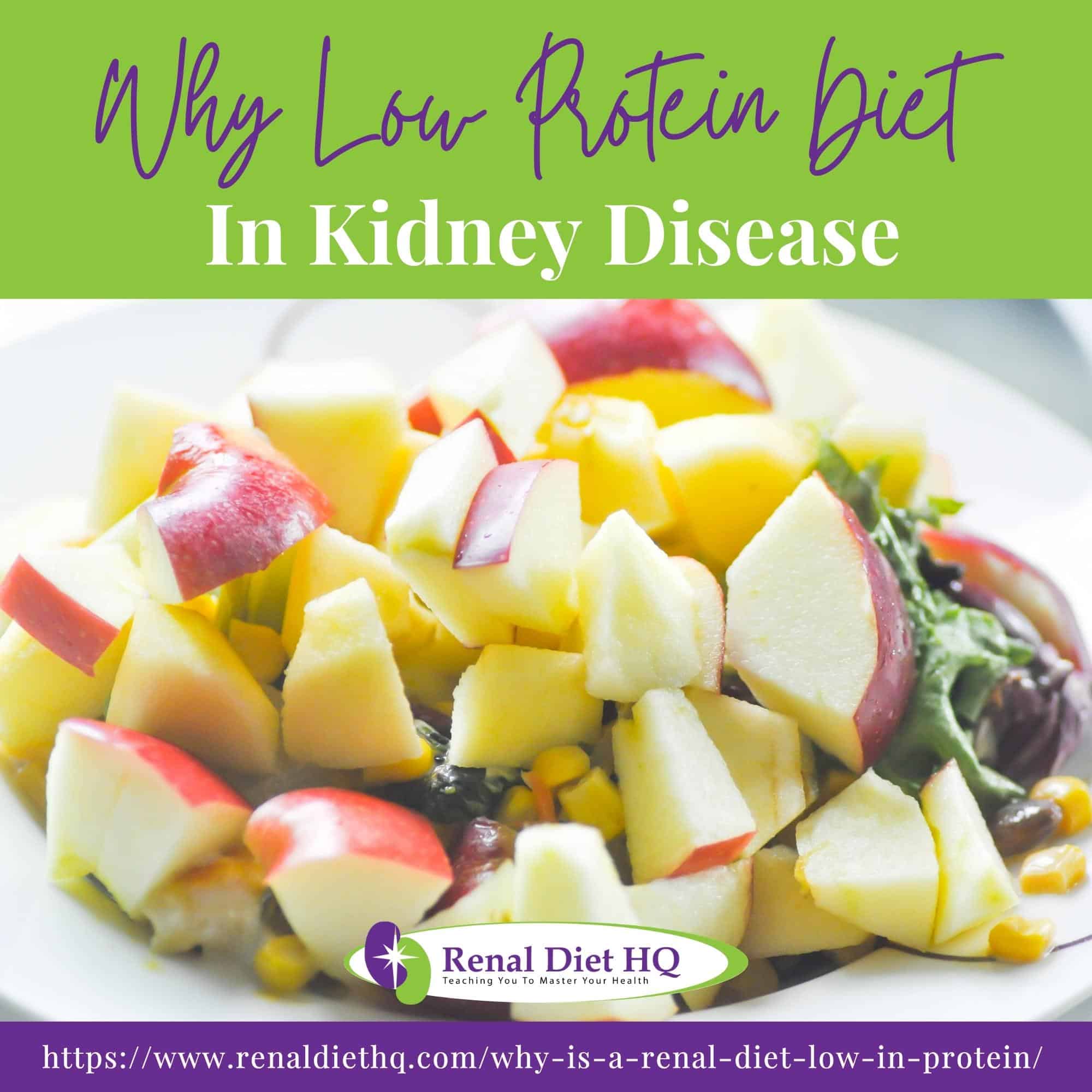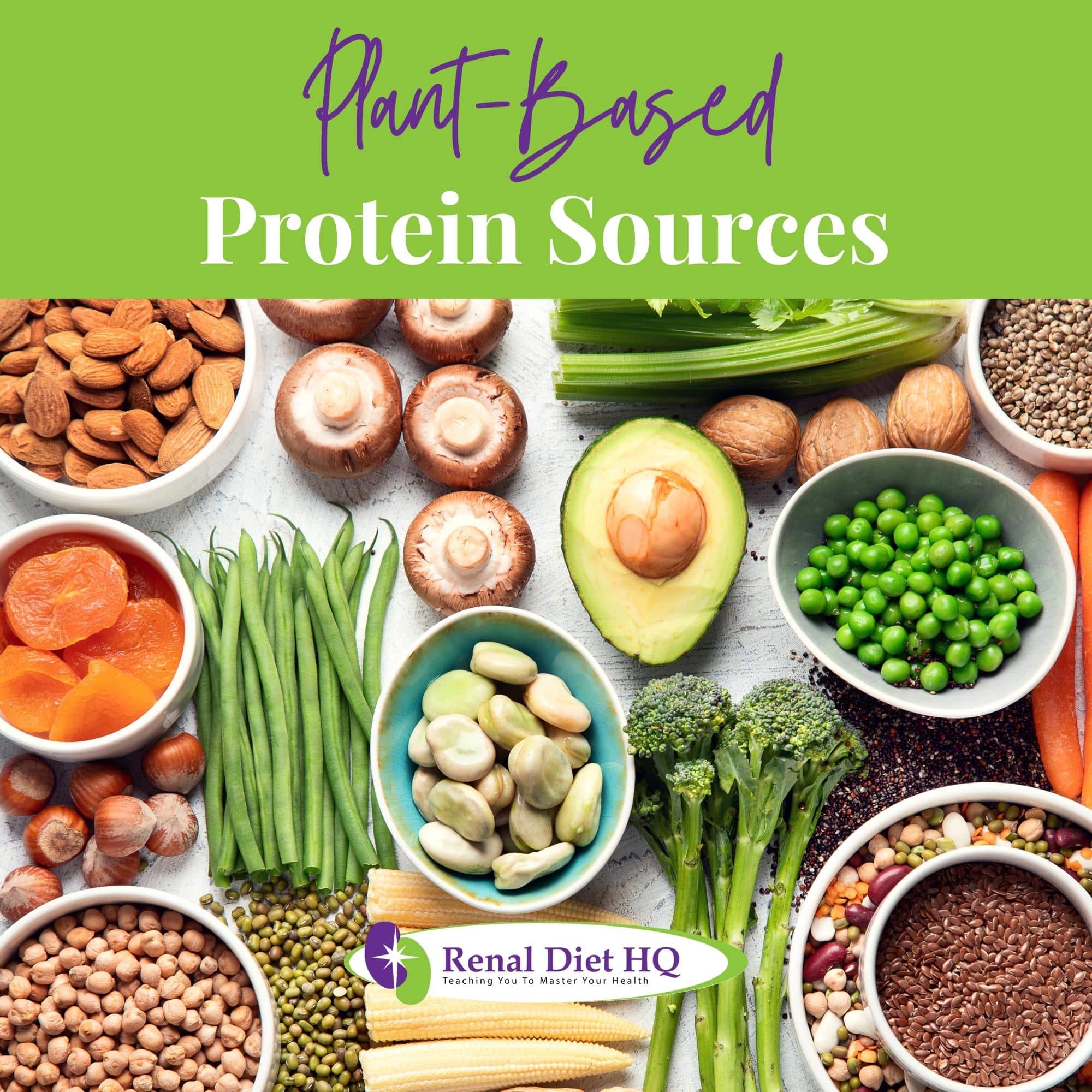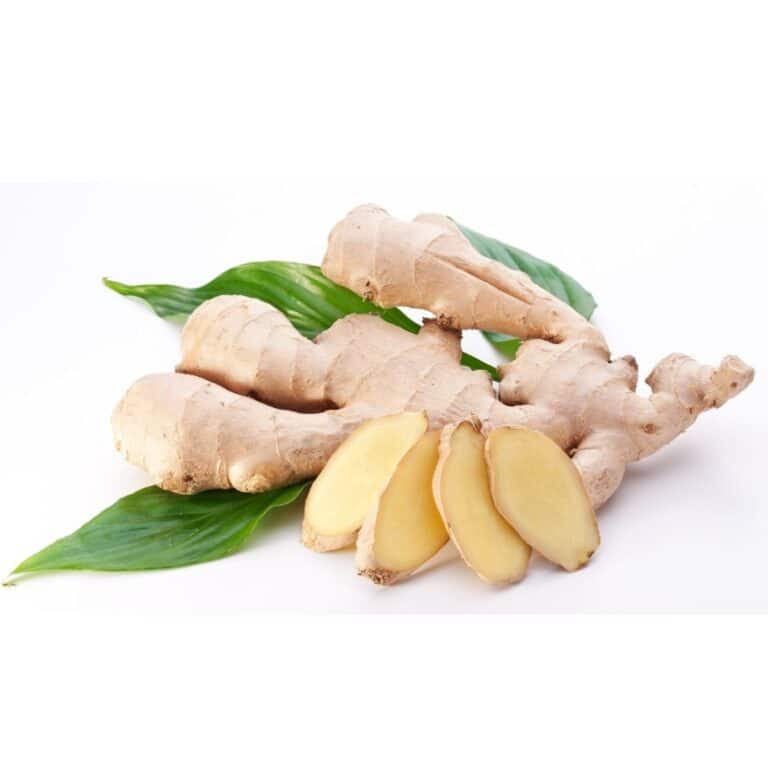Why Low Protein Diet In Kidney Disease
It’s no mystery that our bodies must have protein to function properly. Without this nutrient, you would have a very hard time healing from an injury or fighting infections. While healthy adults need 46-56 grams of protein each day, many renal diets given to chronic kidney disease (CKD) patients limit protein to much lower amounts.
Protein for CKD Patients by stage? A low protein diet is beneficial for CKD patients for several reasons. Firstly, high protein diets can strain the kidneys, increasing waste build-up that could lead to further kidney damage or even cardiovascular disease. However, the right amount of protein for CKD patients varies, depending on their body size and the stage of their condition.

When you have kidney disease, it becomes essential to consume heart-healthy proteins like fish, chicken, and soy products. Regular check-ups with a doctor or dietitian are key in personalizing your renal diet plan and ensuring you're getting enough calories to prevent muscle and weight loss.
By understanding the importance of a low protein diet and managing it effectively, you can make a significant impact on your overall health and well-being.
Jump to:
- Key Takeaways
- Understanding the Function of Kidneys
- How Much Protein Should I Eat on my Renal Diet?
- The Role of Protein in the Body
- Impact of Red Meat On The Kidneys
- Plant-Based Protein Sources
- Planning Your Meals
- Balancing Nutrition with Reduced Protein
- Helpful Tips for Implementing a Suitable Meal Plan
- Monitoring Your Health and Progress
- FAQs Why is a Renal Diet Low in Protein
- Enjoy Low-Protein Foods With Your Kidney Diet
Key Takeaways
- Protein waste must be removed from the body, and in chronic kidney disease patients, impaired kidney function can lead to a build-up of waste that can worsen kidney function with higher-protein diets.
- Good protein sources on a renal diet include fish, chicken, and soy products, while eggs and other meats may not be suitable. Fruits, vegetables, and grains can also be included in a protein-restricted diet.
- Following a renal diet is crucial for managing kidney disease and protein intake, as not adhering to a specialized diet can be harmful for kidney patients. The renal diet is customized for each individual's health status and includes high-quality protein sources.
For More Recipes and Ideas --->> Get Your Free Meals and Recipes That Are Perfect for Pre-Dialysis Diets, Pre-Dialysis with Diabetes, or Dialysis Diets.
Understanding the Function of Kidneys
Picture this: your kidneys are tireless workers, filtering out waste from the food we consume and helping to maintain a delicate balance in our bodies.
Your kidneys play a vital role in managing the body's protein metabolism. They remove urea from your blood, a form of protein waste products that's produced in the liver, and excrete it through urine. This process helps regulate the levels of metabolic waste in your bloodstream. But with chronic kidney disease (CKD), this crucial function begins to falter.
When you have renal insufficiency, that protein you've been enjoying can start causing real problems. Because of reduced kidney function in CKD patients, they're unable to filter out all the protein waste efficiently.
This causes accumulation of protein waste—a condition called uremia—which can lead to various health issues like cardiovascular disease, hormonal and electrolyte imbalances, and may aggravate kidney disease. Consequently, it's essential for people with CKD to follow strict protein intake guidelines tailored by healthcare professionals according to their specific needs.
How much protein in CKD Diets? That's why adhering closely to low-protein diets is an important step for those managing their CKD. Not only does it help ease some burden off your worn-out kidneys, but it also gives them a better fighting chance at slowing down the rate of decline of kidney disease. So remember, while we all love our proteins, let's ensure we're enjoying them responsibly!

How Much Protein Should I Eat on my Renal Diet?
The recommended protein intake for individuals with CKD will vary based on the stage of the disease they are in. According to the national kidney foundation, patients with stages 1-2 of CKD should limit their protein intake to no more than 0.8 grams of protein per kilogram of your ideal body weight, not your actual body weight.
Once an individual reaches the advanced stages of CKD (stages 3-5), the recommended dietary protein intake may be further reduced to 0.55-0.6 grams of protein per kilogram of the ideal body weight. This is because the kidneys are further damaged at this stage, making it even more important to limit dietary protein intake.
However, once patients are on dialysis, which is often recommended during stage 5 of CKD or End-Stage Renal Disease (ESRD), they will depend on a dialysis machine to filter wastes from the blood. During dialysis, some proteins may also be lost along with waste products. Therefore, higher-protein diets may be necessary to make up for what has been lost during dialysis.
Individuals on dialysis may need to increase their high biological value protein intake compared to non-dialysis-dependent chronic kidney disease patients in order to avoid protein energy wasting, which is depletion of the body protein and energy stores. 1.2-1.3 grams of proteins per kilogram of ideal body weight is generally recommended for dialysis patients.
It's important to note that an individual's body size and current nutritional status may also be considered along with CKD stage when determining safe protein intake. In many cases, a personalized nutritional measure may be necessary to ensure that an individual's protein requirements are met while also protecting their kidney function.
Not only does limiting your protein intake lead to a slower decline of kidney disease, but it can also help attenuate oxidative stress and improve insulin resistance, which is especially important for diabetic patients.
Working with a registered dietitian who has expertise in renal nutrition is essential for developing an individualized nutrition plan that meets the specific needs of individuals with CKD.
The Role of Protein in the Body
Although you should limit your protein intake, you still need to consume sufficient amounts of protein to maintain your muscle mass and strength.
Here are some of the key roles of proteins:
- Building and repairing tissues: Proteins are essential for building and repairing tissues in the body, including muscles, bones, skin, and organs.
- Enzymes: Proteins act as enzymes, which are catalysts that facilitate chemical reactions in the body. Enzymes enable various reactions, such as the breakdown of food during digestion and generating energy.
- Hormones: Some proteins act as hormones, which are chemical messengers that aid communication between tissues and organs
- Transport and storage: Proteins can act as transporters, carrying molecules such as oxygen and nutrients throughout the body. They can also store molecules, such as iron in the protein ferritin.
- Immune system function: Antibodies are specialized proteins produced by the immune system that recognize and neutralize foreign invaders, such as bacteria and viruses.
- Energy source: In times of starvation or low-carbohydrate diets (low carb low potassium foods), the body can break down proteins for energy.
The importance of adhering strictly to protein intake recommendations cannot be overemphasized. Maintaining optimal protein intake ensures you can still meet your daily nutritional needs for adequate body function while keeping your kidneys healthy.
Impact of Red Meat On The Kidneys
Red meat, particularly processed red meat, has been linked to a number of health problems, including an increased risk of heart disease, type 2 diabetes, and certain cancers. In people with CKD, there is some evidence to suggest that a high dietary intake of red meat may also lead to a higher risk of advanced kidney failure.
It is important to note that while reducing protein intake can be beneficial, it is not recommended that you completely eliminate protein from your diet as it plays an important role in overall health. Instead, focus on consuming high-quality proteins such as
One potential reason for this is that red meat is high in protein, and a high protein intake can put extra strain on the kidneys. When protein is broken down in the body, it produces waste products that need to be filtered out by the kidneys. In people with CKD, the kidneys may not be able to handle this extra workload, which can lead to further damage to the kidneys.
Additionally, processed meat is high in phosphorus, which can also have negative metabolic effects on people with CKD. When the kidneys are functioning normally, they are able to remove excess phosphorus from the blood. However, in people with CKD, the kidneys may not do this effectively, leading to elevated levels of phosphorus in the blood.
When there is an excess of phosphorus in the blood, the body tries to restore balance by pulling calcium from the bones. This results in a decrease in calcium levels in the bone, which can weaken and demineralize bones over time.
Additionally, excess phosphorus in the blood can lead to the formation of calcium deposits in soft tissues throughout the body, including the eyes, heart, lungs, and blood vessels. These deposits can cause damage to these tissues and organs, leading to complications such as heart attack, stroke, or death.
Therefore, it is important to maintain healthy levels of phosphorus in the body, especially for individuals with kidney disease. This can be achieved by limiting the intake of high phosphorus foods, such as processed and prepared foods, and by working with a healthcare provider or registered dietitian to develop an individualized nutrition plan.
Overall, while red meat can be a good source of protein and other nutrients, people with CKD may be better off limiting their intake of red meat, particularly processed red meat, in order to slow down the rate of renal function decline and prevent kidney disease complications.
Instead, they may benefit from focusing on other sources of protein, such as fish, poultry, and plant-based sources like beans and lentils. It's also important for people with CKD to work with a healthcare provider or registered dietitian to develop a personalized nutrition plan that meets their individual needs.

Plant-Based Protein Sources
Plant-based diets can be a great alternative to red meat for individuals with CKD. Plant-based proteins also provide essential amino acids, which are the building blocks of protein that the body needs for muscle growth and repair.
Phosphorus from plant-based protein sources tends to be less absorbable when compared to animal protein, making them a better choice for people with CKD. In addition, plant proteins tend to be lower in saturated fat and cholesterol than red meat, which makes them more heart-healthy.
Examples of plant-based sources of protein include beans, lentils, nuts and seeds, whole grains such as quinoa(quinoa renal diet) and bulgur wheat, soy products like tofu and tempeh, and nut butters
By incorporating these foods into their diet, individuals with CKD can meet their protein needs while limiting their intake of phosphorus-rich foods. Additionally, they can benefit from the vitamins, minerals, and other beneficial nutrients found in plant proteins.
Planning Your Meals
Navigating the world of meal planning may seem like a challenge, but rest assured, it's certainly one you can conquer! Living with kidney disease doesn't mean you have to miss out on delicious meals. All it takes is some thoughtful preparation and knowledge about protein alternatives.
Start by understanding what you can eat and how much of it. Portion control strategies are crucial in managing your protein intake without compromising nutrition. A dietitian can provide guidance on this, helping you determine just the right amount of food for each meal.
Next, explore kidney friendly recipes that use low-protein ingredients such as vegetables and grains. There are plenty of flavorful options available – from hearty veggie stews to satisfying whole grain pastas. You don't need to eliminate protein entirely; instead, opt for lean proteins like fish, poultry, or even soy products in small quantities.
One helpful meal planning tip is to make sure your plate has a good balance: half filled with non-starchy vegetables, a quarter with lean protein, and another quarter with whole grains or starchy vegetables. This ensures you get a variety of nutrients while keeping your overall protein intake in check.
Remember that every person's needs are different – what works for one person may not work for another due to varying body sizes and stages of CKD. That's why creating a balanced meal plan (7 day meal plan for kidney disease) tailored specifically to your needs is essential. Regular appointments with your healthcare provider or dietitian will ensure that your dietary regimen remains effective and suitable for your condition over time.
By taking time now to plan appropriately, manage portions effectively, and discover new recipes fitting into these guidelines—every day will become an exciting opportunity to nourish yourself well!
Balancing Nutrition with Reduced Protein
Striking the right balance in your meals can seem like a tightrope walk, but it's a challenge that's totally conquerable! With CKD, you need to cut back on protein consumption while still meeting your body's nutritional needs.
Protein alternatives become your best friends when you're on a renal diet. Opt for fish, chicken, and soy products instead of meats high in saturated fats. Even within these alternatives, portion control is crucial. Stick to only small servings of chicken or fish to avoid overloading your kidneys.
Managing protein cravings might be challenging initially but remember variety is key in keeping those taste buds happy! Incorporate foods such as beans, lentils, nuts and whole grains into your diet. They not only offer protein but are also high in fiber and lower in fat compared to animal sources.
If you experience muscle loss despite adequate intake from food sources, do consult with your healthcare provider about protein supplements. These may help meet increased protein needs without adding strain on the kidneys.
Helpful Tips for Implementing a Suitable Meal Plan
Creating a suitable meal plan for your unique needs can feel like an uphill battle, but we've got some handy tips that'll turn you into a savvy meal planner in no time! Let's delve into the world of low-protein dieting and discover how to balance nourishment with kidney health.
Here are five essential meal planning tips:
- Identify protein alternatives: Expand your culinary repertoire by exploring red meat alternatives. Lentils, tofu, and quinoa are packed with proteins without overburdening your body with saturated fat
- Master portion control: Keep an eye on portion sizes. A smaller serving of meat or dairy coupled with more veggies can help maintain protein intake within recommended limits.
- Try nutrient supplementation: Consult your healthcare provider about supplements to ensure you're getting all essential nutrients while on a low-protein diet.
- Educate yourself on food labels: Developing an understanding of nutritional labels goes a long way. It helps track protein content and manage dietary restrictions efficiently.
- Consult a healthcare professional regularly: Diet modifications should always be supervised by medical experts who understand the complexities of CKD.
Remember, it's not just about reducing protein; it's also about incorporating the right kind of proteins and maintaining overall nutritional balance. The goal is to protect your kidneys without compromising body strength or immune function.
Meal planning might seem daunting initially, but armed with these strategies and continued guidance from healthcare providers, you'll create meals that satisfy both taste buds and health requirements alike!
Remember: patience is key as dietary changes take time to reflect noticeable improvements in health conditions. With diligence and determination, this journey towards better kidney health will get easier each day!
Monitoring Your Health and Progress
Keeping a close eye on your health and tracking improvements is crucial when managing chronic conditions like kidney disease. The process involves consistent dietary adjustments and protein monitoring. Carefully watching what you eat can make a significant difference in stabilizing your condition and enhancing your overall well-being.
A key part of this process is regular kidney function evaluation. This isn't just about routine check-ups; it's also about understanding how dietary changes are impacting your body's ability to filter waste from protein intake. It's equally important to recognize any symptoms indicating accumulation of protein waste products build-up in the blood, as such signs might necessitate further adjustments in your diet or medication.
Don't forget that personalized recommendations play a vital role here too! Everyone's body responds differently to dietary changes, so it's essential to maintain open communication with healthcare professionals who understand your unique needs.
Whether it be adjusting the amount of protein consumed or incorporating more plant-based foods into meals, their guidance can help ensure that these alterations truly benefit your renal health (renal diet breakfast lunch dinner).
Collaboration with healthcare professionals goes beyond just following their advice—it's also about actively participating in discussions regarding treatment plans, staying informed about recent findings related to management of patients with kidney disease, and being proactive in asking questions or expressing concerns. Remember–you're not alone on this journey!
FAQs Why is a Renal Diet Low in Protein
When managing kidney disease, it is important to focus on keeping your diet balanced. Protein is an essential macronutrient for many bodily functions, and dietary protein restriction should not be seen as a complete restriction of the nutrient.
Following a very low-protein diet can also potentially lead to protein deficiency symptoms like loss of muscle mass, more severe infections, and skin and nail problems.
Kidney disease or renal failure patients are prone to loss of appetite, which is why it's important to maintain an adequate but not an excessive intake of protein
In addition to focusing on adequate protein intake, other nutritional parameters are equally important. Keeping track of daily caloric intake and ensuring that you're keeping adequate energy intake can also help prevent protein catabolism and muscle wasting.
Yes, there are specific protein-rich foods that are safer for CKD patients to consume.
Are kidney beans good for kidneys? Vegetarian proteins like lentils, beans, and tofu are good options as they provide necessary protein without adding too much saturated fats.
Fish is also another high-quality protein source with many health benefits. Fish provides essential omega-3 fatty acids, which may help reduce inflammation and lower blood pressure, as well as vitamins D and B2,
It is important to choose protein sources with minimal amounts of sodium, additives, and preservatives.
Consult with a dietitian for CKD-friendly recipes that effectively incorporate these safer protein alternatives into a renal diet.
As a CKD patient on a low-protein diet, it is important to balance your nutrition carefully. Dietary counseling can help you plan meals that provide necessary nutrients and adequate calories.
In addition to careful meal planning, nutrient supplementation may be needed to ensure you are getting essential vitamins and minerals. It is important to remember the role of vitamins in supporting your overall health.
Furthermore, staying well hydrated is crucial for kidney patients on a low-protein diet. Hydration helps support kidney function and overall well-being.
However, your optimal nutrient and fluid intake may change depending on your current stage of CKD, so it is always best to consult with your dietitian for personalized nutritional management and guidance on managing your nutrition while on a low-protein diet.
While reducing the amount of dietary protein can be beneficial for managing CKD, changing your dietary habits should not be seen as the only solution. There are other lifestyle changes that can help you improve your quality of life.
Making sure to get enough exercise and rest, controlling stress levels, and quitting smoking are essential steps for managing this condition. Eating a balanced diet with plenty of fruits and vegetables is also key for maintaining optimal health.
In addition to these tips, keeping up with regular doctor visits and laboratory tests are critical for tracking CKD progression (chronic kidney disease laboratory tests) over time. This information can help inform decisions about nutritional therapy or other treatments options that may be necessary for managing your condition.
While it may not be possible to reverse kidney damage, a low-protein diet can potentially help lower the risk of progression of kidney disease and the risk of kidney failure. By limiting certain protein sources, you're reducing the dietary impact on your kidneys, possibly helping prevent further kidney damage.
Keeping track of your daily dietary protein intake is essential for managing CKD progression, and it is important to monitor other nutrients as well. Eating plenty of fruits and vegetables and avoiding excessive sodium intake can help reduce the strain on the kidneys.
Additionally, getting adequate exercise and rest are beneficial for overall health and wellness.
Enjoy Low-Protein Foods With Your Kidney Diet
So, you see, managing your protein intake is an important part of nutritional therapy for patients with chronic kidney disease. By avoiding excessive protein intake, you're slowing down your chronic kidney disease progression and boosting your overall health.
It is also beneficial to seek out other high-quality protein sources. Plant proteins, such as legumes, nuts, and seeds, are an excellent option for a low-protein diet since they contain fewer cholesterol and saturated fat than animal-based proteins. Some plant proteins can even provide essential amino acids that are similar in quality to those found in animal sources.
Remember to regularly consult with your doctor or dietitian to customize your meal plan and monitor your kidney function. Balancing nutrition while reducing protein can be a challenge, but with patience and guidance, you can effectively manage this aspect of your kidney disease journey.














